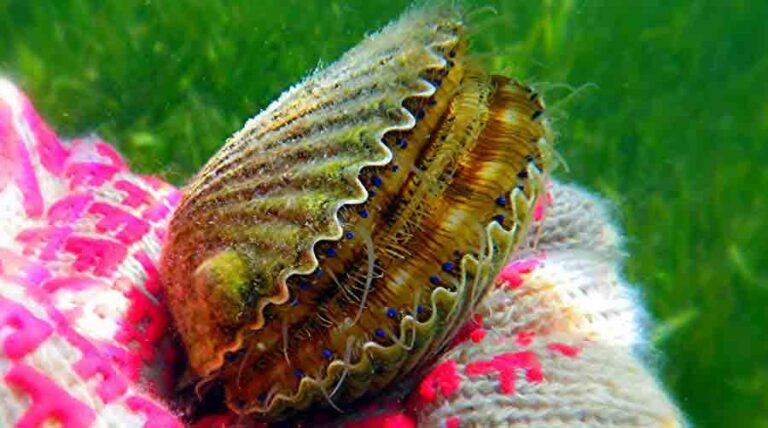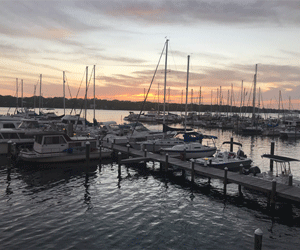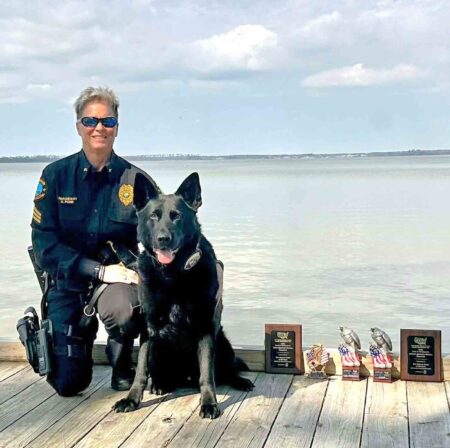GULF COUNTY, Fla. — The Florida Fish and Wildlife Conservation Commission (FWC) has announced that the 2025 recreational bay scallop season for the Gulf County Zone will open Aug. 16 and remain open through Sept. 24.
According to the FWC, this region includes all state waters from the Mexico Beach Canal in Bay County to the westernmost point of St. Vincent Island in Franklin County. The season covers all of St. Joseph Bay.
The daily bag limit is two gallons of whole bay scallops in the shell or one pint of bay scallop meat per person, with a maximum of 10 gallons of whole bay scallops in the shell or one-half gallon (four pints) of shucked meat per vessel per day.
Throughout the season and region-wide, vessel limits do not allow an individual to exceed their personal bag limit. Harvest of bay scallops is permitted only by hand or by using a landing or dip net. Commercial harvest is prohibited.
For information on bay scallop regulations, the FWC directs the public to visit MyFWC.com/Marine and click on “Recreational Regulations” and “Bay Scallops” under the “Crabs, Lobster and other Shellfish” tab.
Although bay scallop season dates can vary by region, regulations allow the direct and continuous transit of legally harvested scallops through closed areas. When transiting, boaters may not stop their vessels in closed waters and must proceed directly to the dock or ramp to land scallops.
The FWC reminds recreational harvesters that a Florida saltwater fishing license is required to harvest bay scallops unless exempt or holding a no-cost shoreline fishing license and wading from shore to collect scallops. The exemption applies if harvesters’ feet remain on the bottom, they do not swim, snorkel, or SCUBA, and they do not use a vessel to reach or return from the harvest site.
To purchase a saltwater fishing license, visit GoOutdoorsFlorida.com, call toll-free 888-FISH-FLORIDA (888-347-4356), or purchase through the Fish|Hunt FL app.
The FWC also issued boater and scalloper safety reminders. Statistics show over half of boating fatality victims in Florida were reported as being able to swim, with drowning often occurring after a fall overboard. In 2024, over 40% of boating fatalities in the state were caused by people falling overboard and drowning, and over 75% of drowning victims were not wearing a life jacket.
Safety tips for divers and boaters include: staying within 300 feet of a correctly displayed divers-down flag in open water (100 feet in a river, inlet, or navigation channel) and operating at idle speed within those distances.
For more information on boating safety, the FWC advises visiting MyFWC.com/Boating, clicking on “Boating Regulations,” and selecting “Divers-down Warning Devices.”
The FWC also reminded boaters of seagrass protection laws. Damaging seagrass beds is illegal in certain state waters. Boaters should remain within marked navigation channels when possible and avoid traveling through shallow seagrass beds, which can be scarred by propellers. Seagrasses are vital for manatees, green sea turtles, and marine habitats, and act as natural water filters.
For more on seagrass awareness, visit MyFWC.com/Boating, click on “Boating Regulations,” and select “Seagrass Awareness.”
The agency also cautions against discarding scallop shells in inshore waters near recreational areas such as boat ramps and swimming spots. Piles of discarded shells can create hazards for swimmers and damage seagrass habitat. Scallop shells should be discarded in trash receptacles or in larger bodies of water where they will disperse. Trash should be stowed securely on vessels to prevent it from blowing overboard.







